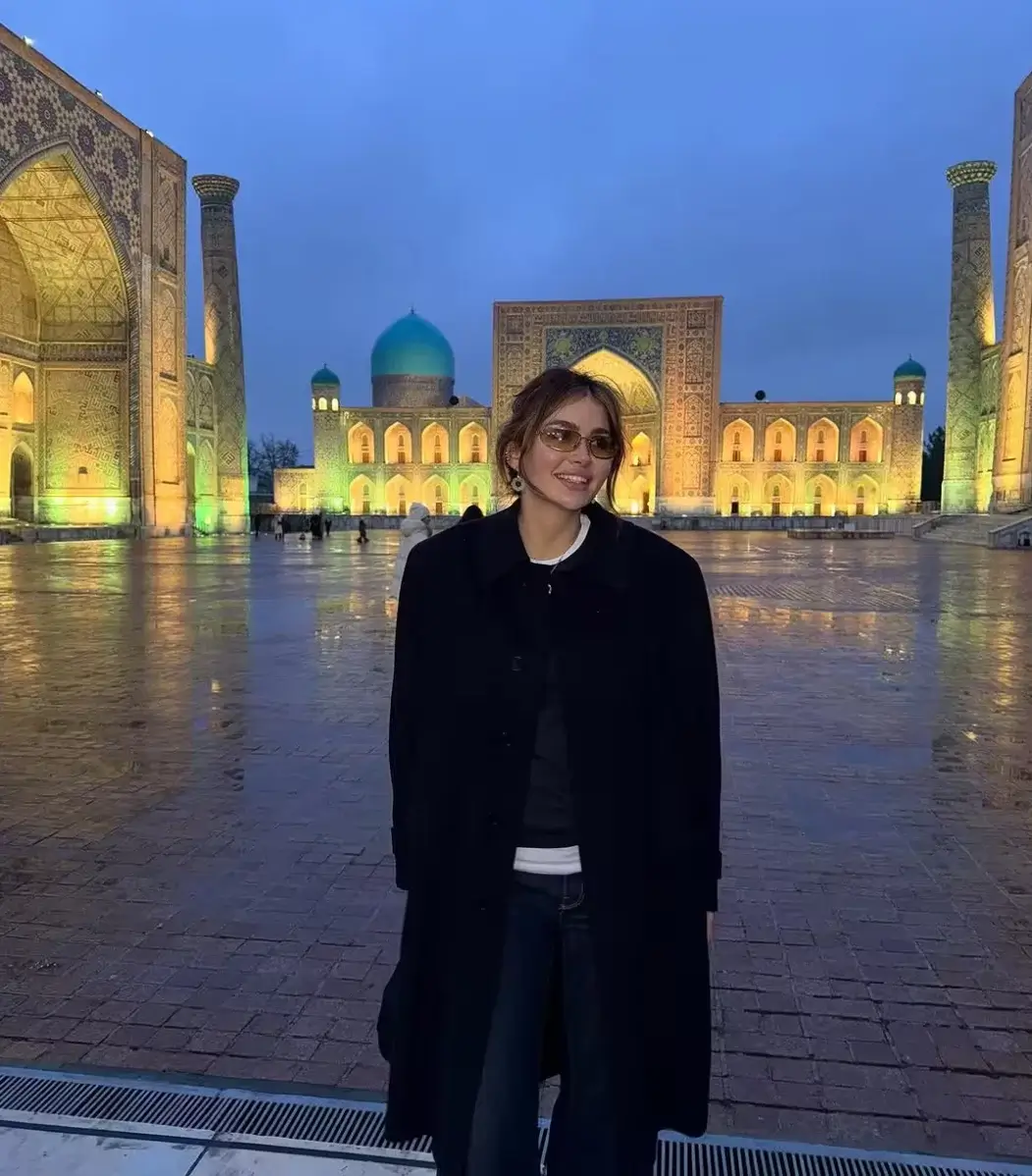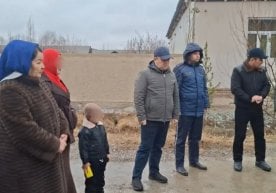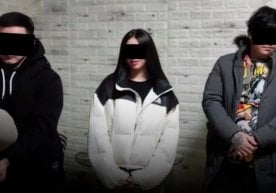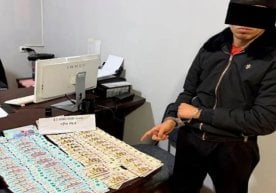Blogger Maryam Tillayeva gave an interview about her personal life

Blogger Maryam Tillaeva, in an interview with Uznews, spoke about her childhood memories, her current activities, complex relationships with her parents, and also responded to the question: “Where is the people’s money?”
On her marriage with Amiran Sardarov
“Our marriage ceremony was held in one of the chapels in Las Vegas and was actually just a joke. After that infamous semi-nude photo was posted, I couldn’t forgive it. Later, I witnessed Amiran disappearing for days, getting involved with prostitutes and drugs… I endured it for a while. But once it reached physical violence, I couldn’t find a reason to stay anymore. Now I’ve rebuilt myself — look where I am, and where he is.”
Her first steps into blogging
“When I came to Uzbekistan for a month to visit my grandmother, I decided to replicate the ‘looking for a husband’ trend that was popular in Russia. I still don’t understand why people reacted to it so negatively. Maybe they genuinely wanted me to be happy. But under my video, comments like ‘Shame!’, ‘How can you do this?!’, ‘Disgrace!’ started pouring in.
Then, advertising offers started coming in, and I realized that blogging could actually be a source of income.”
Where is the people’s money?
“I earn my own money. I don’t use my parents’ funds. I only post photos of traveling and relaxing with friends. Claims that I live off money stolen from the people — that’s a label unfairly attached to me and my family.”
What is Maryam Tillaeva doing now?
“Currently, I’m studying acting in Moscow, participating in a few projects, and working on my own podcasts.

On ‘Masha TeleTalk’, I interview famous figures from Uzbekistan’s show business. Recently, Munisa Rizayeva was my guest — she openly shared about her personal life. Timur Alikhanov spoke about his pilgrimage and his relationship with his wife Farida.”
Discrimination, religion, and racism in childhood
“Because my mother worked as a UNESCO ambassador, we lived in different countries — France, Latvia, Switzerland. Especially when I studied in Switzerland, there was intense hatred towards Muslims and people of color. I was called a monkey, laughed at. Since childhood, even though I wasn’t responsible for my family’s actions or decisions, I constantly had to justify myself.”
“I was harshly criticized from a young age. There were even times I was locked in bathrooms, yelled at. Imagine — even a girl like me was scolded.
At times, I wanted to end my life. I couldn’t tell my parents — they were too busy with their own lives. It was extremely hard for a little girl.
But now that I’ve lived through it, I can take criticism calmly. Because I believe those criticisms say more about them than about me.
Maybe they see something in me that reflects something within themselves — and that enrages them.”
“My life didn’t belong to me — it belonged to others”
“My childhood was bright but complicated. I witnessed many things — how people are ready to betray each other, how even the closest ones can change. I didn’t really have a childhood — my life didn’t belong to me.
I was always accompanied by bodyguards. I barely knew the city I lived in. I was always surrounded by adults. I didn’t have friends, because I was taught to be suspicious of everyone. When I turned 18, I started to build human connections, to seek deep relationships.
Now I’m 26, and finally free. I live for myself. I earn my own money. This long-awaited feeling of freedom — that is my greatest treasure.”
Islam Karimov as a grandfather
“He was the most wonderful grandfather in the world. Until we moved abroad, I didn’t even know he was the president. I thought all grandfathers went to work at 8 a.m. in a suit. He was simple, cheerful, wise. He talked to me like an adult, taught me many things.
Once he taught me how to pose for a photo: ‘Put one foot forward, the other back’, I remember him saying. He would emphasize the importance of reading, poetry, dance, and feminine grace for a woman.
I can say he was like a father to me. He was the pillar that held our family together. Now he’s gone, and our family is broken.
For me, he was a perfect person. No one can compare to him.”
“I wouldn’t wish this kind of family or life on anyone!”
“My family is unlike others. I wouldn’t wish such a life on anyone. My grandmother is the only true friend I have. I call her ‘oyi’ (mom), because she filled that role. She knows all my friends, she’s always been there for me in the hardest moments. I value her deeply.”
“My parents don’t speak to me…”
“I stay in touch with my aunt, grandmother, cousins. But I don’t talk to my mother or father. Since childhood, I had disagreements with my mother. I still feel resentment. She’s upset with me too. Right now, I’m banned from entering her salons and restaurants. I want to sit and talk with her. To apologize for the photos on social media.
But right now — there is only silence between us. This inner pain doesn’t create hatred — it motivates me to work even harder.
Unfortunately, instead of supporting me, my mother chose to compete with me.”
“The only person who has always supported me unconditionally is my grandmother. When I felt lonely as a child, during the conflicts with Amiran — she always tried to understand instead of criticize.
She and my mother never had a good relationship either. In general, there were a lot of psychological issues in our family.”
Updates from her personal life
“Now I’m in a relationship. I never thought I’d choose someone with such a character. I used to think I had an American way of thinking. I couldn’t get along with Uzbek guys because of mentality differences.
But with this person, we share the same worldview. We’re not rushing into anything — we’re taking it step by step.
My advice: even if someone tries to knock you off course — don’t give up. Because on the way to your goal, you’ll face many obstacles.” Read “Zamin” on Telegram!
Ctrl
Enter
Found a mistake?
Select the phrase and press Ctrl+Enter 





















